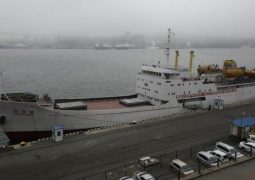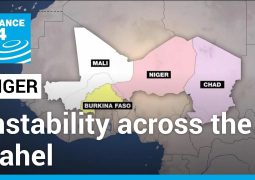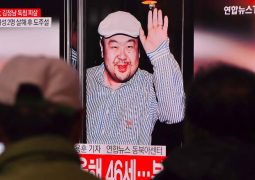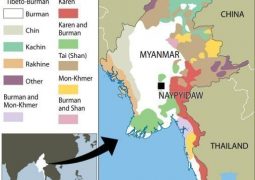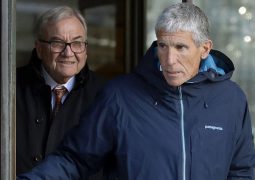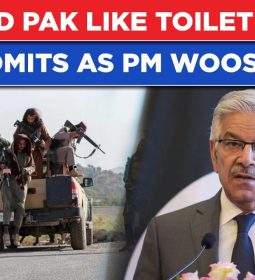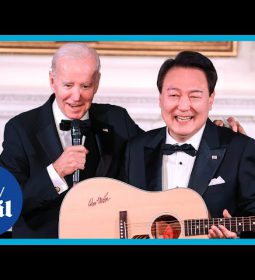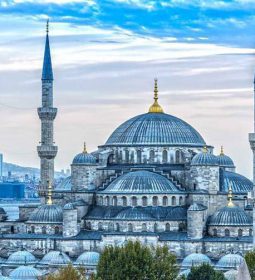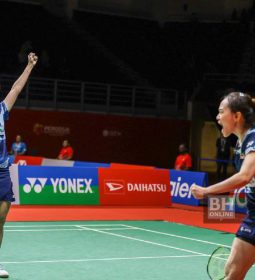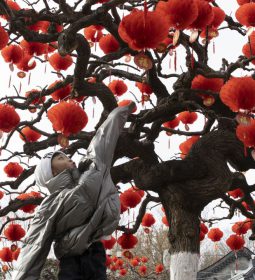Putin welcome Russian prisoners back to Moscow after swap- Historic prisoner swap-Putin gets his spies in ruturn to Western ones and pro-western opposition

The United States and Russia carried out a historic prisoner exchange Thursday when two dozen detainees, including former US Marine Paul Whelan and Wall Street Journal reporter Evan Gershkovich, were released as part of a sweeping deal that involved at least seven countries.
Thursday’s massive swap was the result of years of complicated behind-the-scenes negotiations involving the US, Russia, Belarus and Germany, ultimately leading Berlin to agree to Moscow’s key demand – releasing convicted Russian assassin Vadim Krasikov.
A total of eight people, including Krasikov, were swapped back to Russia in exchange for the release of 16 people who were held in Russian detention, including four Americans.
In addition to Whelan and Gershkovich, prominent Putin critic Vladimir Kara-Murza, who is a US permanent resident, and Russian-American journalist Alsu Kurmasheva were also freed.
“Not since the Cold War has there been a similar number of individuals exchanged in this way and there has never, so far as we know, been an exchange involving so many countries, so many close US partners and allies working together,” National Security Adviser Jake Sullivan told reporters Thursday.
By midday, Whelan, Gershkovich and Kurmasheva were on their way back to the US, according to Secretary of State Antony Blinken.
President Joe Biden called the deal “a feat of diplomacy.”
“Some of these women and men have been unjustly held for years. All have endured unimaginable suffering and uncertainty. Today, their agony is over,” Biden said in a statement.
Biden later told reporters that the swap was made possible thanks to cooperation from multiple countries. “They joined a difficult, complex negotiation at my request,” he said.
“Anyone who questions if allies matter: They do,” Biden said, raising his voice.
The president was joined in the White House by family members of Whelan, Gershkovich, Kurmasheva and Kara-Murza. They included Kurmasheva’s daughter Miriam Butorin, who is celebrating her 13th birthday on Friday. At one moment during the news conference, Biden led families and the assembled press in singing “Happy Birthday” to her.
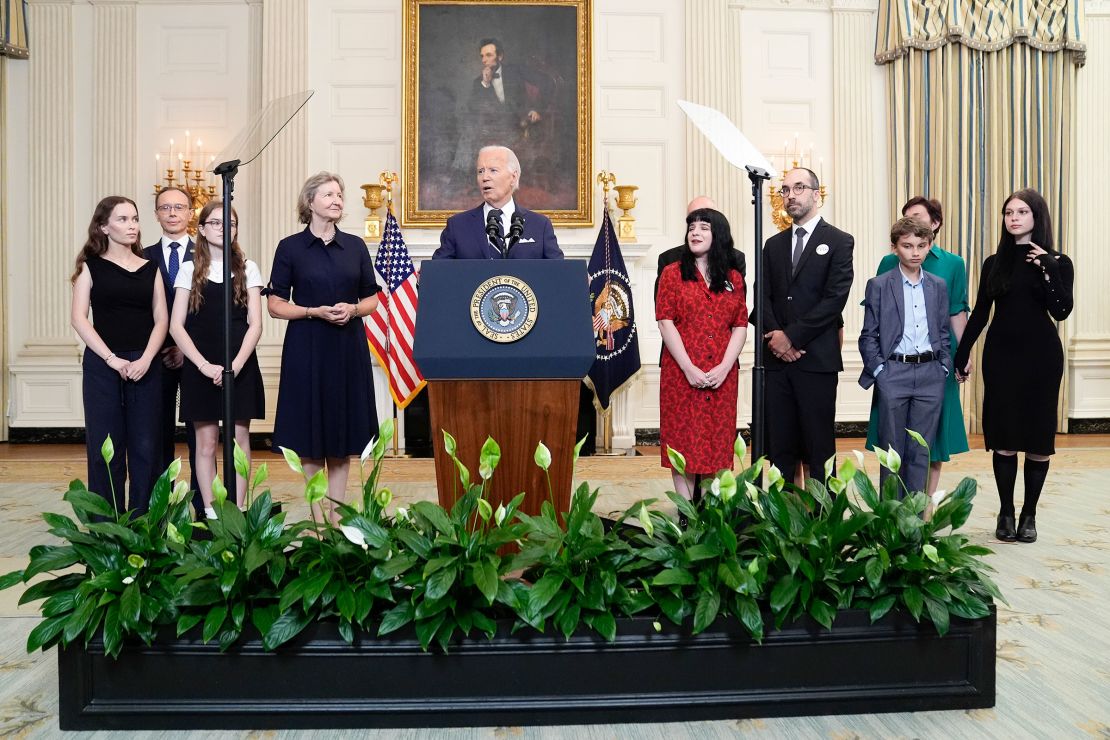
Biden gathered the families earlier to relay the news that their loved ones were heading home, Sullivan said.
Champagne bottles popped on Thursday inside The Wall Street Journal newsroom as staffers celebrated the release of their colleague Gershkovich.
Emma Tucker, The Wall Street Journal’s editor in chief, delivered the official news of Gershkovich’s freedom to the newsroom just before noon on Thursday, calling it “a historic day” for the paper.
“Evan and his family have displayed unrivaled courage, resilience and poise during this ordeal, which came to an end because of broad advocacy for his release around the world,” Tucker and Dow Jones CEO and Wall Street Journal publisher Almar Latou said in a statement.
Germany released high-profile murderer
Sullivan described the negotiations as “painstaking,” and made all the more complicated by Russia’s war in Ukraine and “the overall degradation of our relations with Russia.” The negotiations, which initially focused on securing the release of Whelan, were made even more difficult when the Russians detained Gershkovich and Kurmasheva.
“It became clear that the Russians would not agree to the release of these individuals without an exchange that included Vadim Krasikov, a Russian criminal who was in German custody, not someone we could offer ourselves,” Sullivan said. “That required extensive diplomatic engagement with our German counterparts starting at the top with the President himself, who worked this issue directly with Chancellor Scholz.”
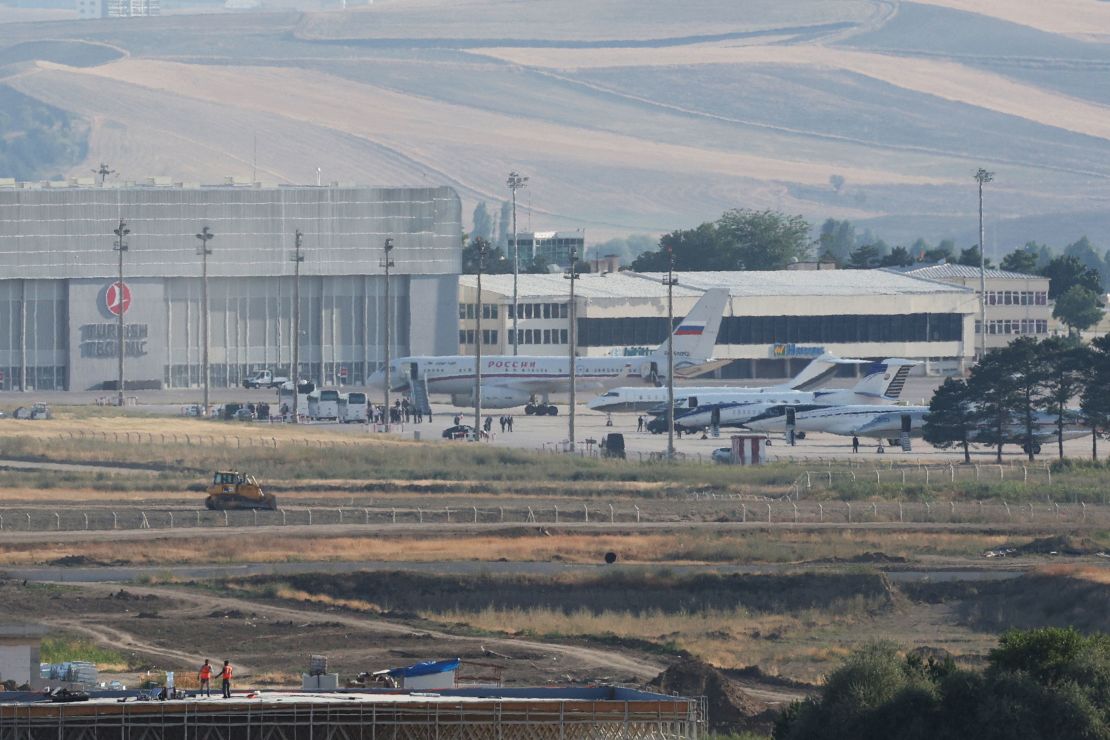
Krasikov was convicted of the murder in 2019 of the former Chechen fighter Zelimkhan “Tornike” Khangoshvili in Berlin. The German court that convicted him in 2021 said he acted on behalf of the Russian state, shooting his victim “execution style” in broad daylight.
Khangoshvili fought against Russian forces during the Chechen wars and later relocated to Georgia, where he survived several assassination attempts. Wanted in Russia on terror charges, he was a particular thorn in the side of Ramzan Kadyrov, the Chechen leader and close ally of Putin.
Putin hinted at his interest in bringing Krasikov back, telling the former Fox News host Tucker Carlson in February that “an agreement can be reached” to release a man whom he said “eliminated a bandit in one of the European capitals” motivated by “patriotic reasons.” Germany did not comment at the time.
The number of people Germany is getting in exchange for Krasikov – five German nationals and seven Russian opposition figures – is indicative of the severity of his crime and his high profile.
Among the Germans returning home is Rico Krieger, who was sentenced to death in Belarus in July after being charged with terrorism and mercenary activities. Krieger was pardoned by the Belarusian leader Alexander Lukashenko this week.
The Russian dissidents released by Russia as part of the deal include several high-profile activists – Kremlin critic Ilya Yashin, the former head of the Nobel Prize-winning organization “Memorial,” Oleg Orlov, and several former staffers from the anti-corruption foundation of Russian dissident Alexey Navalny.
Rumors of a possible imminent swap began circulating earlier this week, when several of the Russian dissidents, including Kara-Murza, went missing from their prison colonies, with their lawyers and families raising alarm.
“Other nations were also critical to securing this deal – Norway, Slovenia and Poland all had custody of additional Russians included in this exchange,” Sullivan said. “We also are deeply grateful to Turkey for providing the critical logistic support that has made this deal possible.”
Swap took shape over years of planning
US officials engaged in months of quiet conversations with the German counterparts about the possibility of releasing Krasikov. Blinken raised it with German Foreign Minister Annalena Baerbock at a G7 meeting in April 2023, but she was not on board, according to a US official familiar with the matter. Sullivan also repeatedly raised it with his counterpart.
Biden then brought the conversations to the highest level in the German system: Chancellor Olaf Scholz. Over a phone call in January, Biden told him that discussing a trade with Russia that included Krasikov would be an item that he planned to discuss with the German leader in their upcoming White House meeting. When they discussed the matter in February in the Oval Office the Biden administration felt that things were moving in the right direction, a second administration official said.
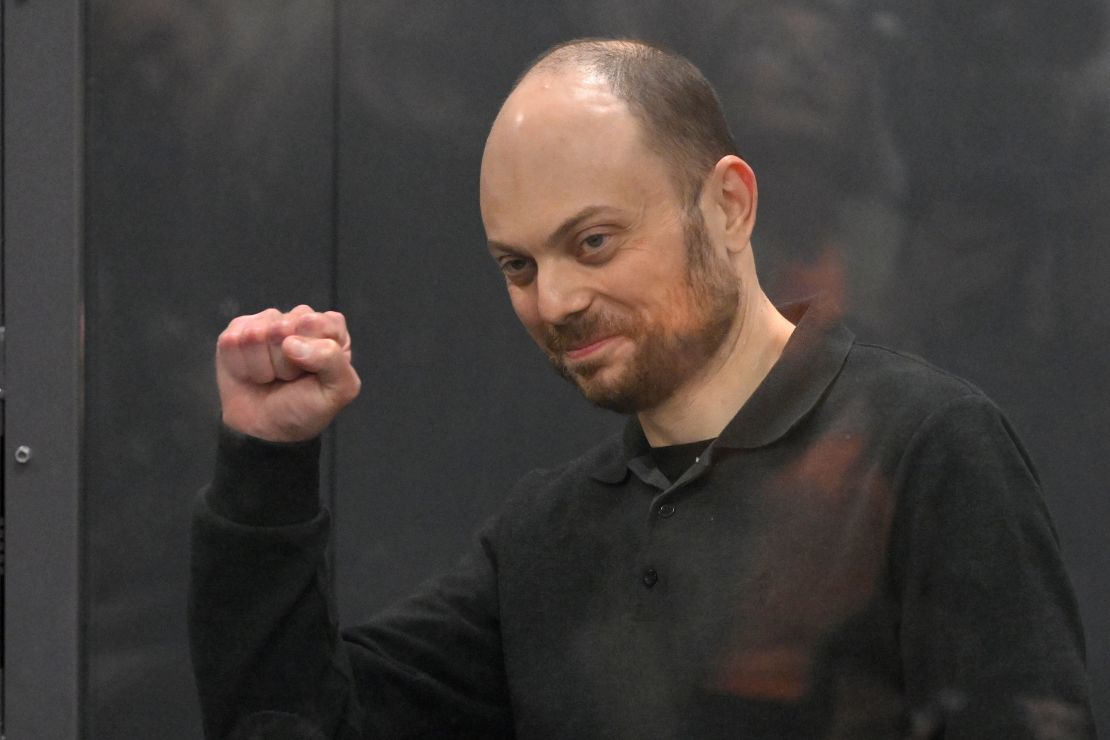
After that meeting, Sullivan was regularly passing lists of possible Russians who could be swapped to Berlin.
But tentative plans in the works that involved the release of Krasikov for Navalny were dealt a blow when Navalny died in a remote Russian penal colony.
On the same day that the US learned the news of Navalny’s death, Sullivan held a previously scheduled meeting with Gershkovich’s parents.
“The team felt like the wind had been taken out of our sails in terms of efforts to get Paul and Evan back home,” a senior administration official said. “Jake, however, saw differently and he stressed to both Ella and Mikhail that he still saw a path forward.”
Sullivan instructed his team “to come up with some additional options to make it politically viable, particularly politically viable to the Germans,” the senior administration official said.
The negotiations across the interagency – up to the level of Scholz and Biden – eventually led to the list of the dozen political prisoners released from Russia Thursday. At the same time, the US began reaching out to allies who had Russian spies in their custody to see who else they could include to get Russia to agree.
According to a second US official, Scholz agreed to the deal in early June, after Biden wrote him a letter in late April. The Russians agreed to the deal about two weeks ago.
The senior administration official defended the release of Krasikov as part of the deal.
“He was certainly the biggest fish that the Russians wanted back. Nobody’s turning a blind eye to his crimes and to his connection to Russian intelligence services. But look, in order to secure the release of innocent people overseas and innocent Americans, you have to make some tough decisions,” they said.
While the nightmare is finally over for those released on Thursday, several other Americans were left out of the exchange.
Marc Fogel, an American sentenced to 14 years of hard labor in Russia, is not included in the swap, his family’s lawyer Sasha Phillips told CNN.
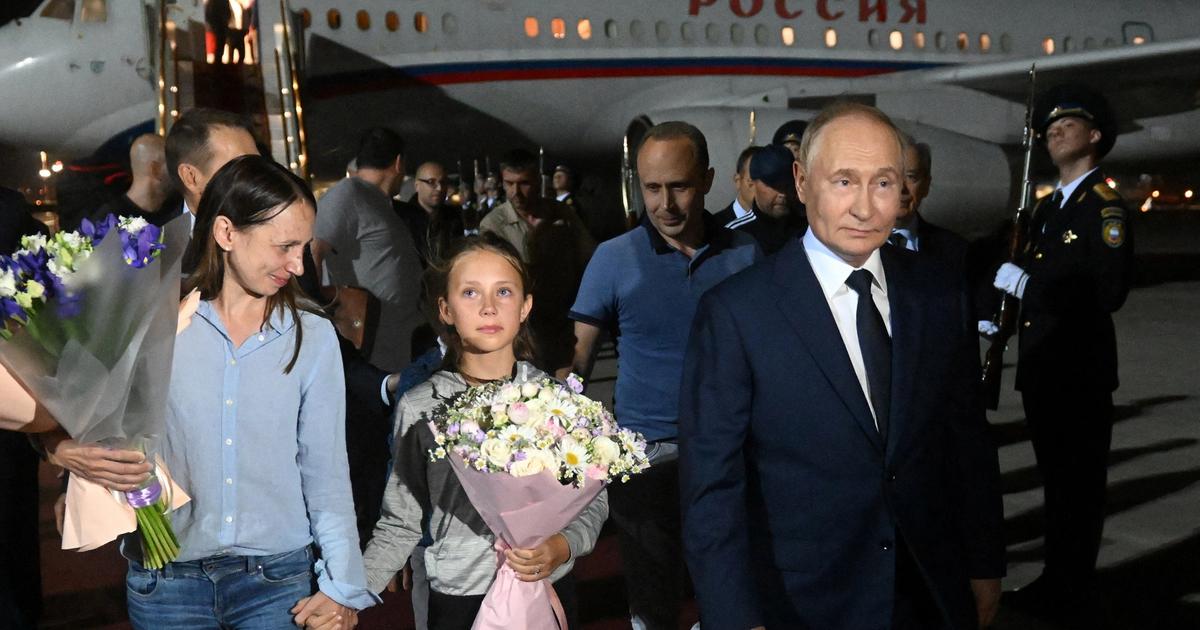
US-Russian citizen Ksenia Karelina, who is on trial in Yekaterinburg on charges of treason for allegedly donating just $51 to a Ukrainian charity in the US, according to her employer.
And hundreds of innocent Russians, subject to politically motivated prosecutions by their own country, also remain in custody, with little hope of release.
This story has been updated with additional developments.
CNN’s Niamh Kennedy, Fred Pleitgen, Anna Chernova, Oliver Darcy, DJ Judd, MJ Lee, Darya Tarasova, Hira Humayun, Gul Tuysuz, Catherine Nicholls, Nathan Hodge and Jim Sciutto contributed to this report.
- Previous PETRONAS: Current State and Future of Malaysia’s oil industry
- Next Break-Up of New Caledonia – France accuse Azerbaijan nch Pacific colony rocked by a wave of unrest







